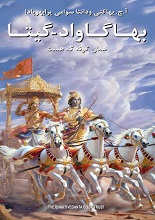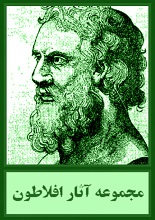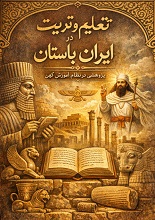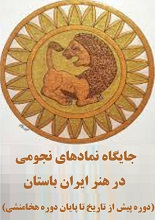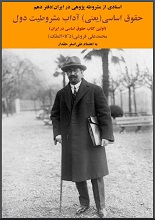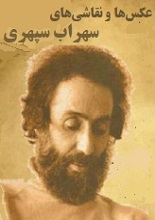Immanuel Kant stands as a monumental figure in Western philosophy, renowned for his profound contributions to metaphysics, epistemology, ethics, and aesthetics. Despite his significant influence, details about his personal life have often been overshadowed by his dense philosophical writings. Manfred Kuehn’s Kant: A Biography seeks to illuminate the man behind the philosophy, offering readers an in-depth look into Kant’s life, context, and the development of his ideas.
About the Author: Manfred Kuehn
Manfred Kuehn is a distinguished philosopher and historian of philosophy, known for his meticulous scholarship and accessible writing style. His expertise in 18th-century philosophy, particularly German Enlightenment thought, positions him uniquely to undertake a comprehensive biography of Kant. Kuehn’s commitment to historical accuracy and contextual analysis ensures that readers receive a balanced and insightful portrayal of Kant’s life.
Overview of the Biography
Kant: A Biography is the first full-length biography of Immanuel Kant in over fifty years, filling a significant gap in Kantian scholarship. Kuehn delves into various aspects of Kant’s life, from his humble beginnings in Königsberg to his rise as a central figure in modern philosophy. The biography is not merely a chronological account; it intricately weaves Kant’s personal experiences with the evolution of his philosophical thought.
Early Life and Education
Born in 1724 in Königsberg, East Prussia, Kant was raised in a pietistic household that emphasized religious devotion and moral discipline. Kuehn explores how this upbringing influenced Kant’s ethical framework, noting that while Kant later distanced himself from organized religion, the moral rigor of his early life left an indelible mark on his philosophy.
Kant’s education at the Collegium Fridericianum and later at the University of Königsberg exposed him to a range of philosophical ideas. Under the mentorship of Martin Knutzen, Kant engaged with the works of Leibniz and Newton, laying the groundwork for his critical philosophy.
دانلود چند کتاب از کانت:
روشنگری چیست؟
انسان و زمانآگاهی مدرن
سنجش خرد ناب
Academic Career and Philosophical Development
Kuehn provides a detailed account of Kant’s academic journey, highlighting his initial struggles to secure a permanent position and his eventual appointment as a professor. During this period, Kant published several works, culminating in his seminal Critique of Pure Reason in 1781.
The biography examines the intellectual climate of the time, including the influence of contemporaries like David Hume and Jean-Jacques Rousseau. Kuehn argues that Kant’s engagement with these thinkers propelled him to develop his unique philosophical system, characterized by the synthesis of rationalism and empiricism.
Personal Life and Character of Kant
Contrary to the image of Kant as a reclusive and austere figure, Kuehn paints a portrait of a man who was sociable, witty, and deeply engaged with his community. Kant was known for his punctuality, daily walks, and lively dinner parties, where he engaged in discussions on various topics.
Kuehn also explores Kant’s personal relationships, including his friendships and rumored romantic interests. While Kant never married, his interactions with women and his views on gender roles are examined, offering a nuanced understanding of his personal life.
Religious Views and Controversies
One of the more contentious aspects of Kant’s life was his relationship with religion. Kuehn addresses this by analyzing Kant’s writings and personal correspondences, revealing a complex stance that combined respect for religious morality with a critical view of institutionalized religion.
The biography discusses Kant’s conflicts with religious authorities, particularly regarding his work Religion within the Bounds of Bare Reason. Kuehn suggests that Kant’s emphasis on reason and autonomy often put him at odds with the dogmatic aspects of religion.
Reception and Impact
Kant: A Biography has been widely acclaimed for its thorough research and engaging narrative. Scholars have praised Kuehn’s ability to contextualize Kant’s philosophy within his personal experiences and the broader socio-political landscape of 18th-century Prussia.
The biography has been recognized as a definitive work on Kant’s life, offering valuable insights for both scholars and general readers interested in philosophy, history, and intellectual biography.
Contents
- Acknowledgments
- Cast of Characters
- Chronology of Kant’s
- Life and Works
- Prologue
- 1- Childhood and Early Youth (1724-1740)
- 2- Student and Private Teacher (1740-1755)
- 3- The Elegant Magister (1755—1764)
- 4- A Palingenesis and Its Consequences (1764-1769)
- 5- Silent Years (1770-1780)
- 6- “All-Crushing” Critic of Metaphysics (1780-1784)
- 7- Founder of a Metaphysics of Morals (1784-1787)
- 8- Problems with Religion and Politics (1788-1795)
- 9- The Old Man (1796-1804)
- Notes
- Works Cited
- Index
Download Kant A Biography
Manfred Kuehn’s Kant: A Biography stands as a monumental achievement in philosophical biography. By meticulously chronicling Kant’s life and thought, Kuehn provides readers with a comprehensive understanding of the man behind the philosophy. This biography not only enriches our knowledge of Kant but also serves as a testament to the enduring relevance of his ideas.
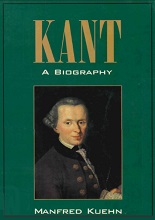
برای دانلود این کتاب، ابتدا باید عضو سایت بشوید.
پس از عضویت، لینک دانلود این کتاب و همهی کتابهای سایت برای شما فعال میشوند.
(قبلا عضو شدهاید؟ وارد شوید)





